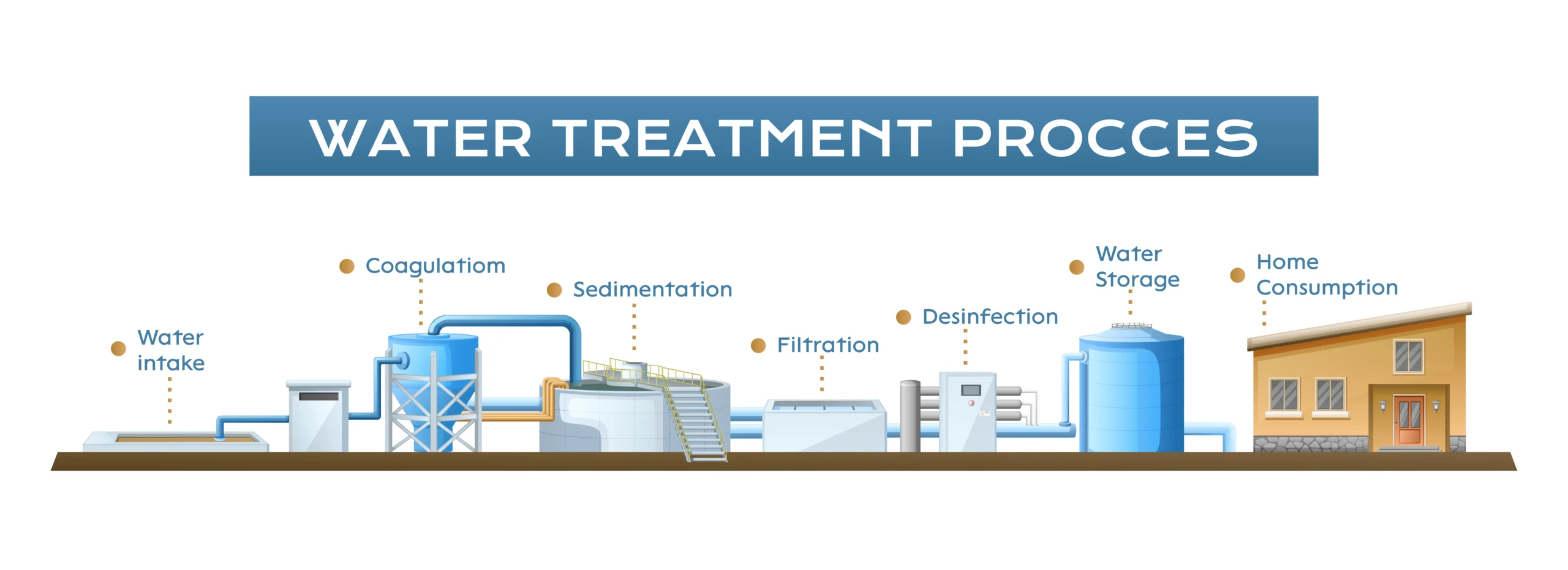
Wastewater Management Systems for Residential and Commercial Use
Smart Solutions for Sustainable Wastewater Treatment
What is a Wastewater Management System?
India generates over 72,000 million liters of wastewater every day, and a large portion of it is discharged untreated into rivers, lakes, and groundwater. This pollution threatens public health, aquatic ecosystems, and water security.
Wastewater management systems are no longer optional — they are essential for both residential and commercial properties to comply with environmental norms, reduce water scarcity, and maintain hygiene.
Companies like Crystal Bio, operating since 2005 in Trichy, have been pioneering advanced bio septic and wastewater treatment solutions that are cost-effective, low-maintenance, and environmentally safe.
A wastewater management system is a process or infrastructure that collects, treats, and disposes of wastewater from homes, businesses, or industries. The goal is to remove contaminants, neutralize harmful bacteria, and safely reuse or discharge water without polluting the environment.
Why Effective Wastewater Management Matters
1. Protects Public Health
Poorly treated sewage is a breeding ground for diseases like cholera, typhoid, and hepatitis. Treating wastewater at the source reduces the spread of waterborne illnesses.
2. Prevents Environmental Pollution
Untreated wastewater contaminates soil, rivers, and groundwater. Modern systems prevent harmful discharge and protect aquatic life.
3. Conserves Water Resources
Treated wastewater can be reused for gardening, toilet flushing, and landscaping, helping reduce dependency on freshwater sources.
4. Meets Legal Requirements
The Pollution Control Board and municipal authorities require proper sewage treatment for commercial and residential complexes, especially in urban areas.
Types of Wastewater Management Systems
1. Bio Septic Tanks (ABRT Technology)
- How it works: Uses anaerobic bacteria to digest organic waste in an oxygen-free environment.
- Benefits:
- Odorless operation
- Minimal maintenance
- Produces reusable water
- No groundwater pollution
- Best for: Homes, apartments, small offices, schools, and hospitals.
2. Decentralized Wastewater Treatment Systems (DEWATS)
- Treats both blackwater (toilet waste) and greywater (kitchen and bathroom wastewater).
- Suitable for housing societies, institutions, and industrial premises.
- Works without electricity and with minimal operator intervention.
3. Sewage Treatment Plants (STPs)
- More complex systems for large-scale commercial, industrial, and municipal applications.
- Includes processes like sedimentation, aeration, filtration, and disinfection.
4. Reed Bed / Constructed Wetlands
- Uses plants and natural filtration to treat wastewater.
- Ideal for rural properties with sufficient land space.
- Requires minimal mechanical parts and energy.
Residential vs. Commercial Wastewater Needs
Feature | Residential Systems | Commercial Systems |
Load Capacity | Lower (single or few households) | Higher (multiple users, continuous flow) |
Design Focus | Compact, aesthetic, low maintenance | High capacity, compliance-driven, scalable |
Water Reuse | Primarily for gardening and flushing | Can include landscaping, cooling towers, industrial processes |
Compliance Requirement | Local building codes | Strict environmental clearance and PCB norms |
Why Crystal Bio Stands Out
- Proven Expertise: Serving since 2005 with 1,000+ successful installations.
- Advanced ABRT Technology: 8-stage anaerobic treatment for odorless, clean water.
- Custom Solutions: Designs for homes, hotels, hospitals, schools, factories, and more.
- 24/7 Support: Continuous maintenance and troubleshooting services.
- Eco-Commitment: Focus on sustainable, zero-pollution systems.
Maintenance Tips for Wastewater Systems
- Avoid dumping plastics, sanitary products, or chemicals into drains.
- Use mild cleaning agents to protect beneficial bacteria.
- Schedule annual inspections.
- Ensure rainwater runoff does not flood the treatment unit.
Conclusion
Whether you own a small house or a large commercial complex, installing a proper wastewater management system is an investment in health, compliance, and sustainability.
With advanced solutions like Crystal Bio’s ABRT bio septic tanks, you can treat sewage efficiently, reduce water bills through reuse, and contribute to a cleaner environment.
1 What is a wastewater management system?
A wastewater management system is a setup that collects, treats, and safely disposes of sewage from homes, businesses, or industries, ensuring it doesn’t pollute the environment. Modern systems like bio septic tanks even produce reusable, odorless water.
2 Why do both homes and businesses need wastewater treatment?
Proper wastewater treatment prevents water pollution, reduces disease outbreaks, conserves freshwater resources, and ensures compliance with Pollution Control Board regulations.
3 How does a bio septic tank differ from a traditional septic tank?
A bio septic tank treats sewage using anaerobic bacteria in a multi-stage process, removing pathogens and odors, and producing reusable water — unlike traditional tanks that mainly store and slowly leach untreated waste.
4 Is the treated water safe to drink?
No. Treated water from wastewater systems is suitable for non-potable uses like gardening, toilet flushing, car washing, and groundwater recharge. For drinking, additional purification is required.
5 Do commercial properties have different wastewater needs than homes?
Yes. Commercial systems handle larger, continuous sewage loads and must meet stricter compliance norms. They are designed for scalability and may include advanced features like cooling water reuse or industrial discharge compliance.
6 Can wastewater systems work in rural areas?
Yes. Systems like Crystal Bio’s ABRT bio septic tanks are ideal for rural areas as they require no electricity for treatment and prevent groundwater contamination — a major issue in villages.
7 How much maintenance do these systems require?
Minimal. Most modern systems need only:
- Annual inspections
- Bacterial culture replenishment every 2–3 years (for bio septic tanks)
- Preventing non-biodegradable waste from entering the system
8 Do wastewater management systems produce bad smells?
No. Properly functioning systems, especially ABRT-powered bio septic tanks, are completely odorless.
9 How long does a wastewater treatment system last?
With proper care, these systems can last 15–20 years or more.
10 Does Crystal Bio provide installation and after-sales support?
Yes. Crystal Bio offers end-to-end service — from site assessment and system design to installation, maintenance, and 24/7 support.
